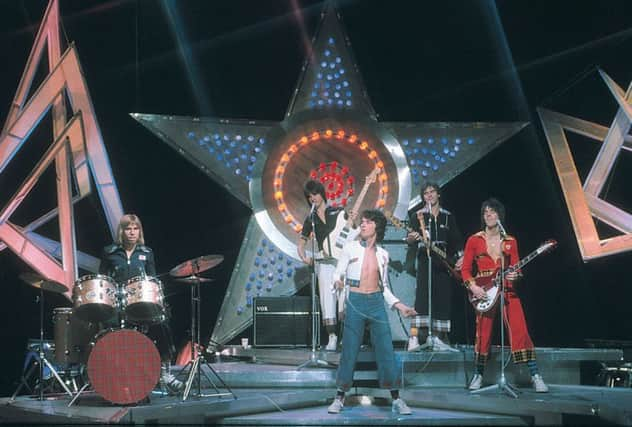Glasgow razor gangs inspired Bay City Rollers’ hit


But now the man behind one of the Bay City Rollers’ best-known anthems, Shang-a-lang, has disclosed that it was partly inspired by the notorious Glasgow razor gangs of the era.
Bill Martin, the unsung songwriter behind many of their hits, said the first line of the chorus – “We sang Shang-a-lang and we ran with the gang” – was inspired by his upbringing in the Govan area of Glasgow.
Advertisement
Hide AdSpeaking in a new BBC Scotland documentary, Rollermania, which tells how the band’s famous tartan image was inspired by a fan from Liverpool, Martin reveals he had created the word “Shang-a-lang” when he was younger to avoid being hit by his mother.
Despite its unlikely origins, Martin says he believes Shang-a-lang would make a suitable national anthem – branding sporting favourite Flower of Scotland “a dirge” and “a load of rubbish”.
The documentary, which will be shown on BBC 1 at 9pm on Monday, recalls how the Edinburgh boy band became global sensations after joining forces with Glasgow-born Martin and Irish singer songwriter Phil Coulter, who had been behind hits like Puppet on a String and Congratulations.
Along with Shang-a-lang, they also wrote Summerlove Sensation, Remember (Sha-La-La-La) and Saturday Night, the song which saw the group score a number one hit in America.
Martin, 76, recalls how he thought the Rollers would have been better “blowing their noses” than trying to play their instruments when he met them.
But he adds: “I was always looking for a Scottish band. I thought they were quite special, quite different from any other pop group.
Advertisement
Hide Ad“It’s easy to write a song, writing a hit song is difficult. Getting people to remember it for ever is the hard thing.
“We weren’t trying to do Bohemian Rhapsody, that wasn’t right. It was pure, unadulterated pop. Shang-a-lang was my favourite song.
Advertisement
Hide Ad“If I swore my mother would hit me. We weren’t allowed to swear. I would go ‘aw Shang-a-lang.’ My mother would say ‘what’s that?’ I said: ‘It is just something I say to stop me swearing.’ Phil said: ‘We should use that, that’s good.’
“There were lots of gangs in Govan at the time, lots of razor gangs and what have you. Blue suede shoes is in there, it was all mixed in like a pot pourri. It was phenomenal, it took off like a rocket.”
Writer and broadcaster Stuart Cosgrove, who appears in the documentary, said: “They weren’t running with their school rugby team, they were running with a gang.
“The gang they were referring to was the gangs of their neighbourhoods and the gangs of industrial working class Scotland and the gangs of the late 1960s and early 1970s. It is actually quite a powerful song.”
Coulter, 73, tells the documentary that although the Rollers could not be trusted to play on their first album or write their own songs, they broke new ground in the industry.
He said: “Record company executives had believed comfortably beforehand that kids buying records were 16, 17, 18 and 19. Then it finally dawned on them, finally, that the kids buying records were seven, eight, nine and ten. That was the gap in the market.”
Martin said: “There has only ever been two manias in the history of the music business – Beatlemania and Rollermania. Now that’s something.”